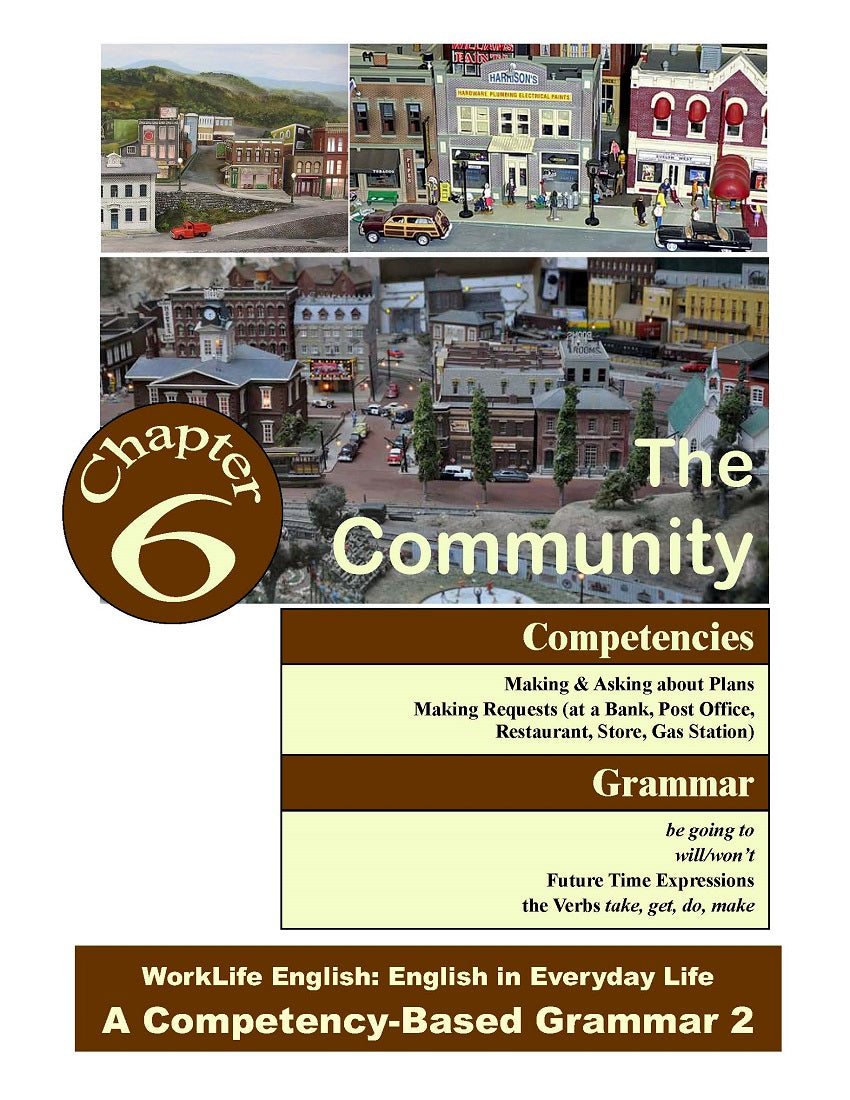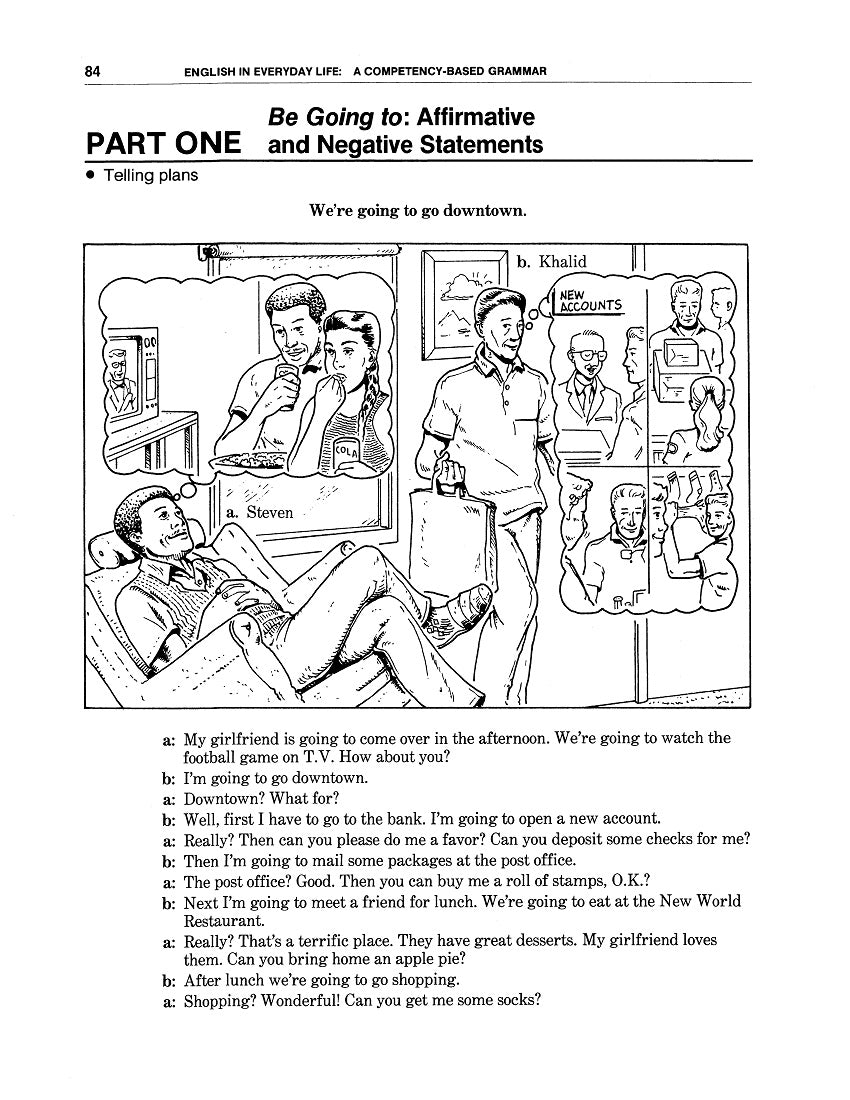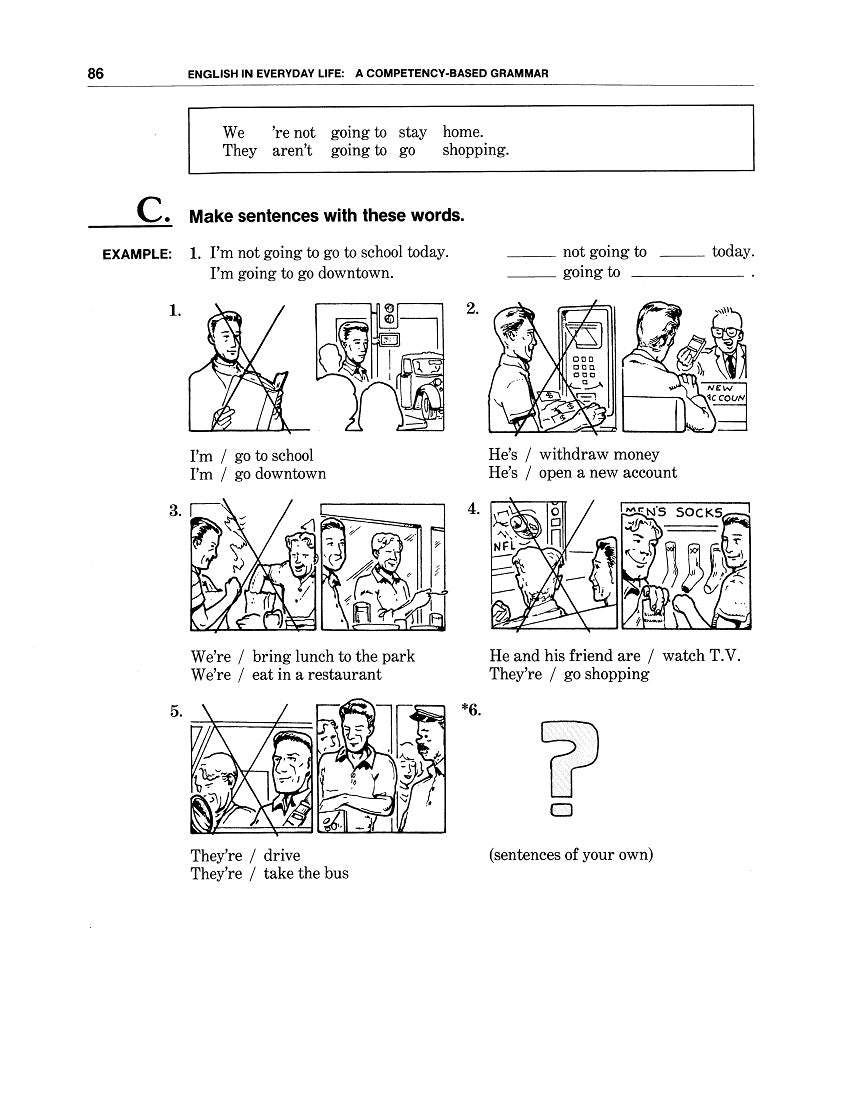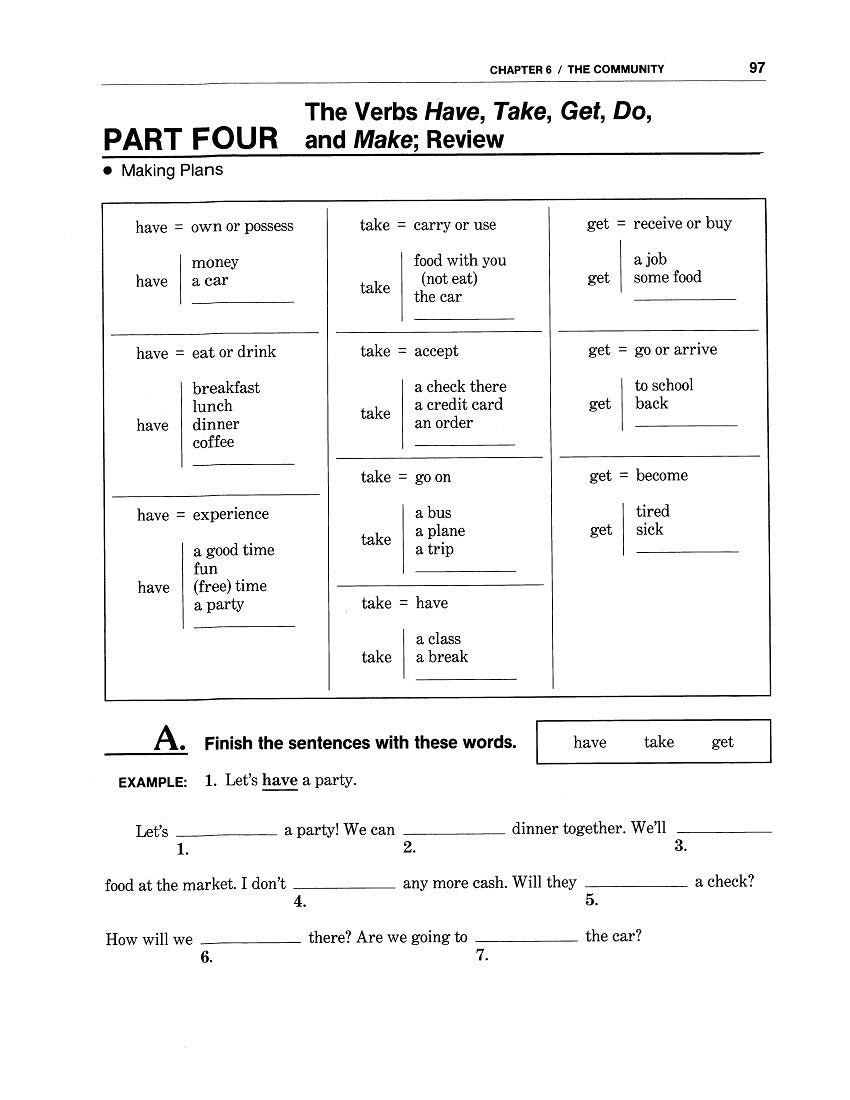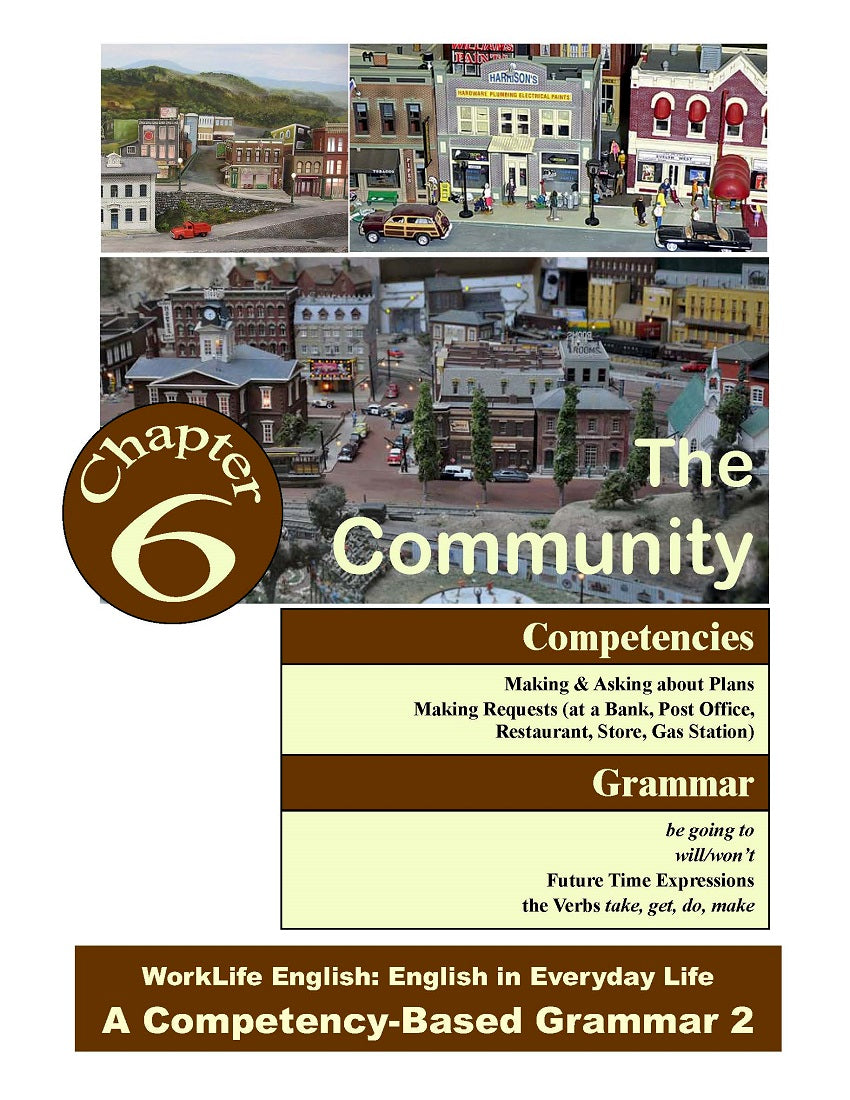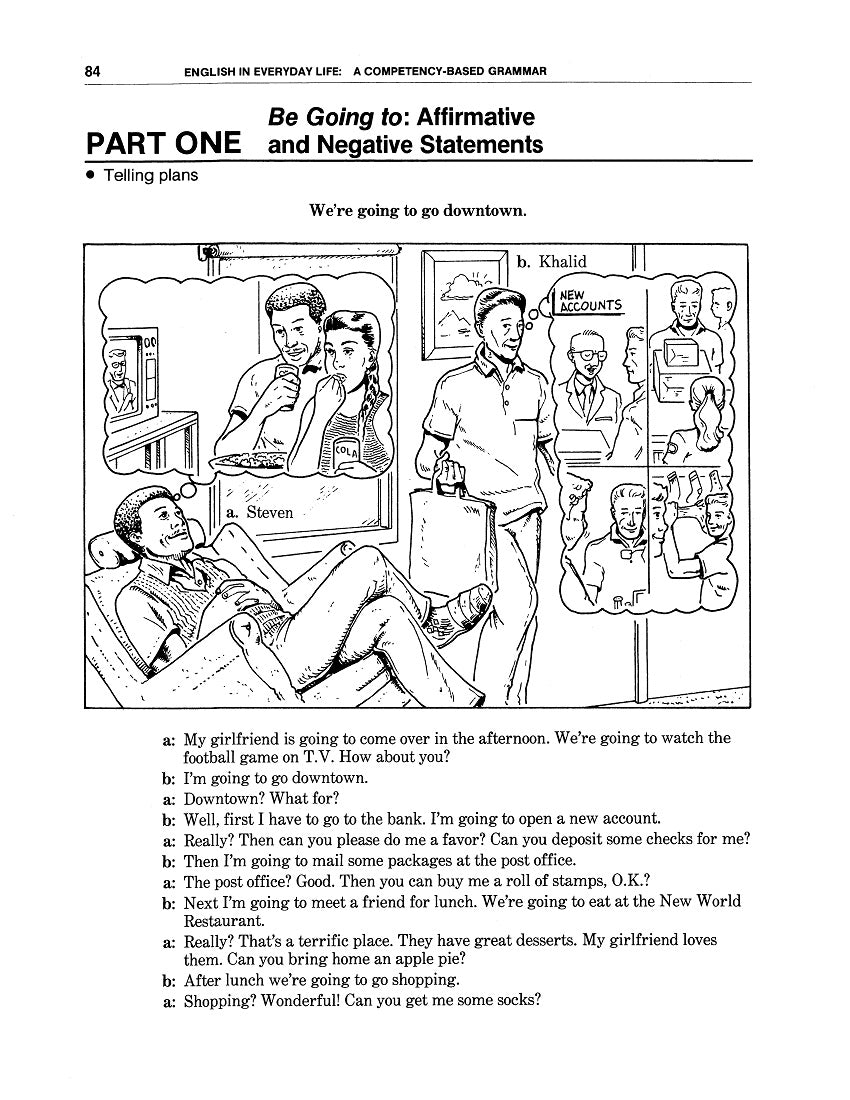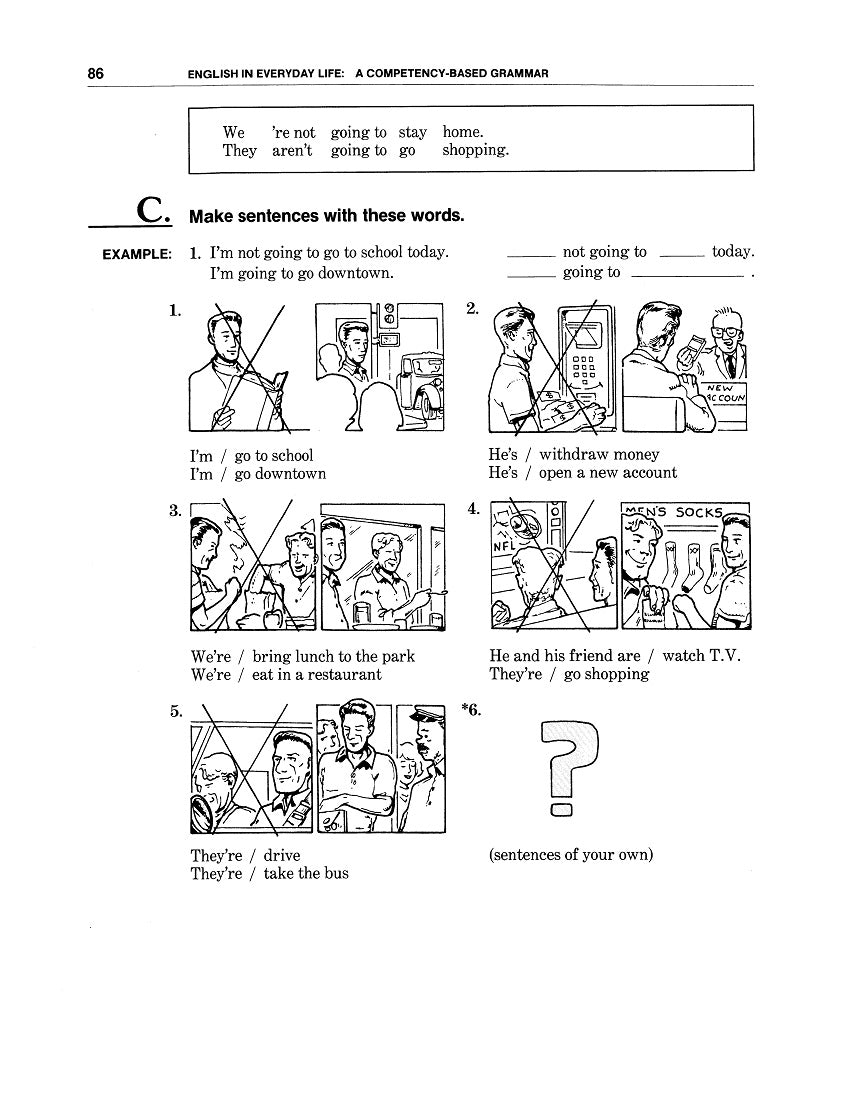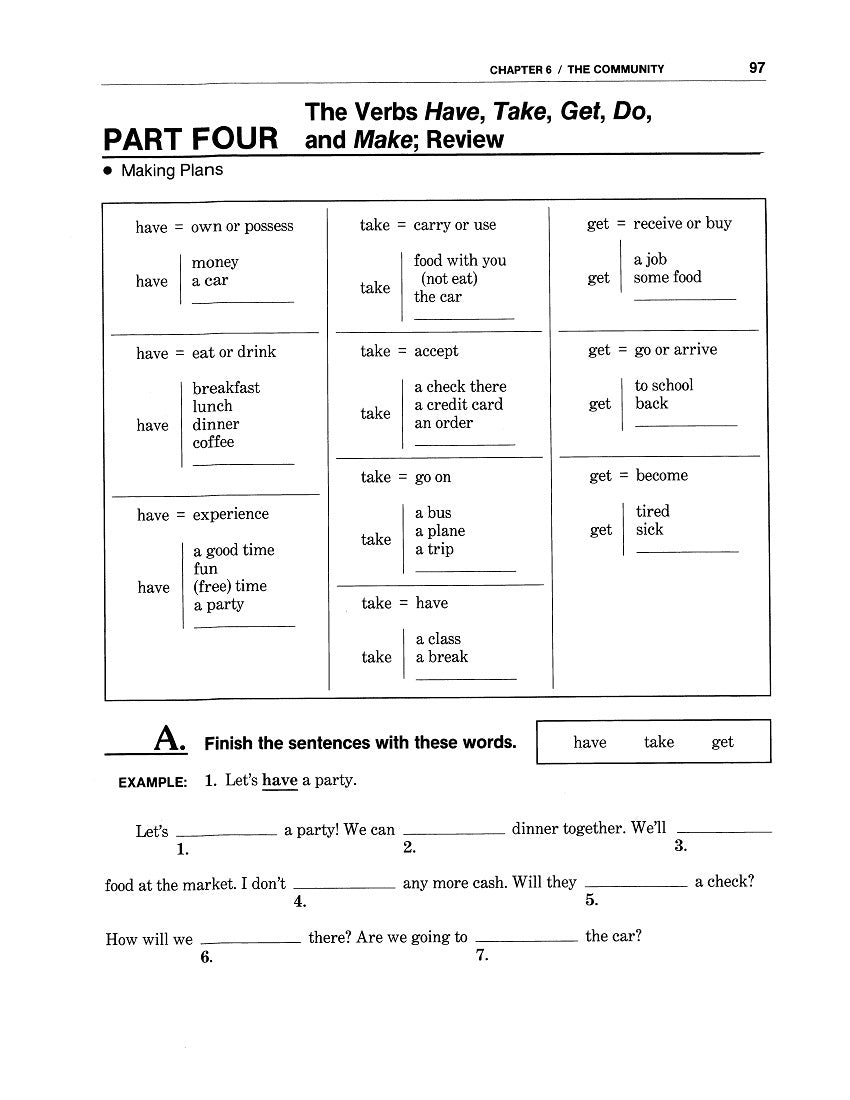1
/
of
4
Work/Life English
D-07.02 Use the Simple Future (be going to + VERB vs will / won’t + VERB)
D-07.02 Use the Simple Future (be going to + VERB vs will / won’t + VERB)
Regular price
$3.00 USD
Regular price
Sale price
$3.00 USD
Unit price
/
per
Parts One-Four of Chapter 6 (“The Community”) of WorkLife English Grammar 2: English in Everyday Life, pages 83-99
17 pages
Who It’s For: (Self) Teachers & Helpers at Beginning Learning Levels
Why It’s Useful: So much of everyday life revolves around future intentions, including requests and promises people make in order to fulfill them. For this reason, early in their grammar study English speakers want to learn how and when to express the future in more than one way. Here are some useful lessons In the context of commonplace neighborhood situations.
What You’ll Do:
[1] With participants, pantomime and read aloud the page 84 Part One: Be Going To: Affirmative & Negative Statements Dialog, “We’re going to go downtown.” After commenting on its content (planning the day), on pages 85-87 use the Grammar-Pattern Boxes to identify the features of Affirmative & Negative Simple Future Statements. To make the grammar “more compelling,” be sure to use go as a main verb in some of the practice sentences.
[2] In Part Two: Be Going To: Questions & Answers, understand and act out the Dialog “What are you going to do today?” Note the changes in word order and intonation required by Yes / No Questions. Choose appropriate verb forms. Make questions and responses that match in a variety of settings, including real-life situations.
[3] Part Three: Will / Won’t: Statements, Questions, & Answers: “Will you please sign these checks?” covers requests people make when they’re out and about in the community. It’s on on pages 93-96.
[4] At the end of the chapter, Part Four: Verbs Have, Take, Get, Do, Make; Review puts it all together. While contrasting two main ways of expressing the future, it adds the motivation of interesting vocabulary: verbs that have multiples of meanings or uses.
Couldn't load pickup availability
